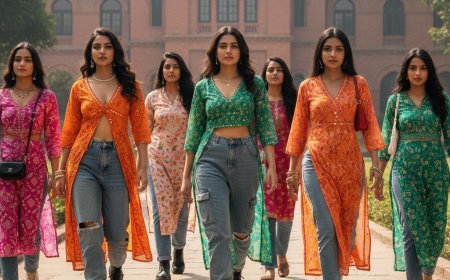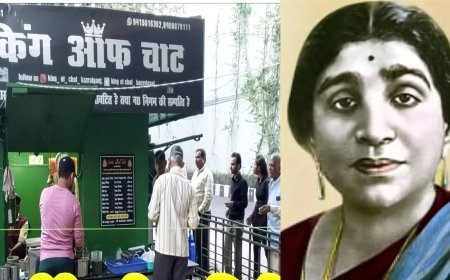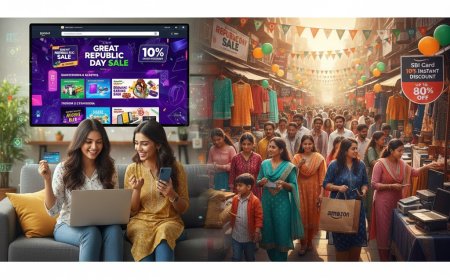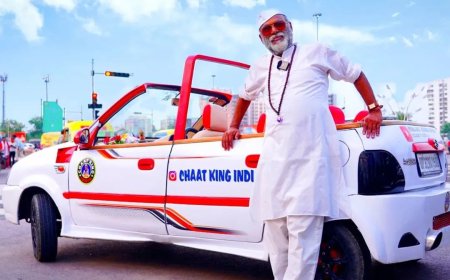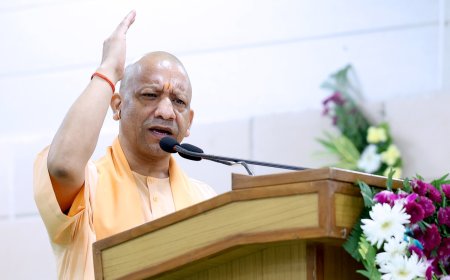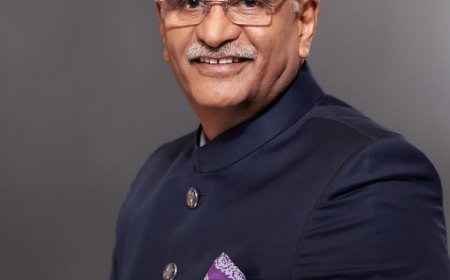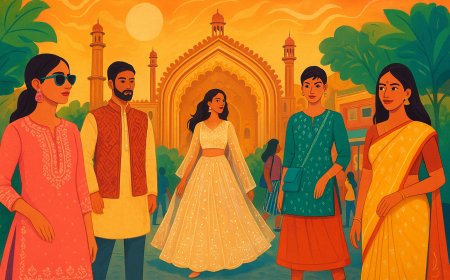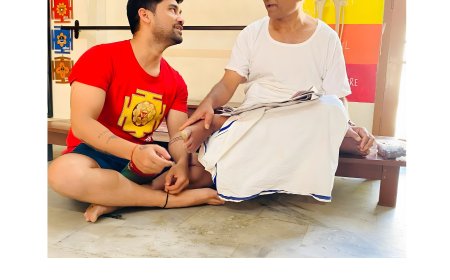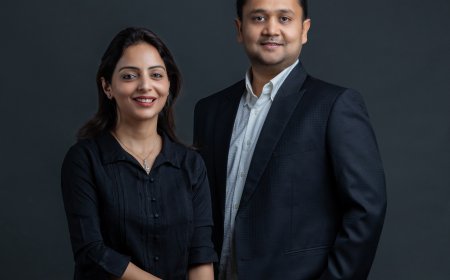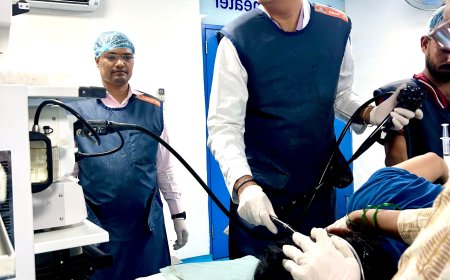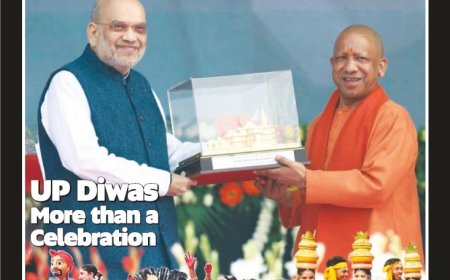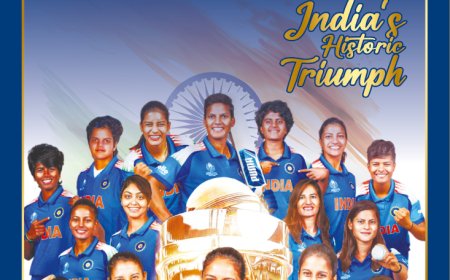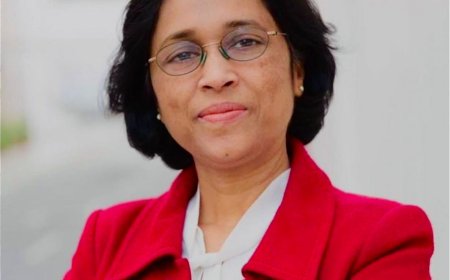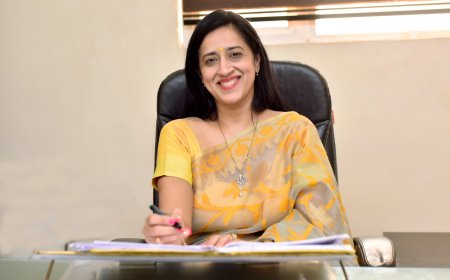With a Patient Ear and a Warm Heart, Anupama Checker Transforms CMS Culture

"Nurturing World Citizens: CMS Gomti Nagar Extension Principal Anupama Checker on Vision, Values, and Holistic Growth"
At the helm of CMS Gomti Nagar Extension (Vardan Khand), Principal Anupama Checker is spearheading a thoughtful and inclusive approach to education. With a passion for instilling global values, fostering emotional well-being, and promoting skill-based, personalized learning, she brings a fresh yet deeply empathetic leadership style to the campus. Principal Anupama Checker’s vision reflects the core values that CMS has long stood for — unity, service, innovation, and empowerment. As she guides the Gomti Nagar Extension campus forward, it’s evident that the school is not just shaping bright minds, but nurturing kind hearts and global leaders of tomorrow.
In this candid conversation, she shares her vision for the future, the innovative programs shaping students' lives, and why listening, collaboration, and compassion are at the heart of true education.
Q: What education programs are currently offered at CMS Gomti Nagar Extension and how do they prepare students for the future?
At our campus, we have a range of progressive programs. Project-based learning is a cornerstone of our approach. We also run the Alfa Program, which offers students hands-on learning, and the JJ Section for senior students – an in-school coaching initiative that spares parents from expensive external tuitions. Our goal is always to create world citizens. We nurture collaboration and creativity, ensuring children grow beyond textbooks and think globally.
Q: How does the school's mission reflect in its approach to value-based education and social development?
Right from the start, our students are taught to greet with “Jai Jagat”, a sign of global unity. Programs like MT and JYEP (Junior Youth Empowerment Program) take them into communities where they interact with the underprivileged, donate, educate, and serve. These activities help instill empathy, responsibility, and real-world awareness — all key traits of a world citizen.
Q: Beyond academics, what key qualities should modern education develop in students?
Academics are just one part of the picture. We encourage students to excel in sports, music, arts, and other co-curricular areas. Through platforms like ABRSM and numerous competitions, every child finds their strength. A student may not top exams but might shine in sports or debate — we create space for all kinds of excellence. Holistic development is our constant goal.
Q: How does the school ensure emotional and academic wellbeing of students, parents, and staff?
Our philosophy includes everyone — students, parents, teachers, support staff. We have school managing committees that include all stakeholders, making decision-making inclusive. When students feel heard, like when they requested Sunday remedial classes be moved from 8 to 9 a.m., we listen. It builds trust and ownership. Well-being comes from this shared sense of belonging and open communication.
Q: You’ve recently taken charge. What are your current focus areas as principal?
Instead of calling them stress areas, I look at them as opportunities for improvement. I’ve had meetings with every stakeholder — teachers, staff, students — and asked them what they expect from me. From academic gaps to two-year-old pending issues, I’m prioritizing solutions. The response has been overwhelming — it feels like I’ve been here for years, thanks to the warm welcome.
Q: What role does international exposure and community service play in CMS's education model?
A huge role. Programs like JYEP have won admiration from foreign universities where many of our students get scholarships. They appreciate our social education model, where students teach underprivileged peers, even their own domestic help. It sets them apart. International competitions and cultural exchanges give them global exposure from a young age. We’re not just preparing students for India — we’re preparing them for the world.
Q: Who are the key figures behind the establishment and growth of the Gomti Nagar Extension campus?
We owe it all to the Founder Manager late Dr. Jagdish Gandhi, our visionary founder, Dr. Bharti Gandhi, and now Prof. Geeta Gandhi Kingdon, who leads with incredible focus on student welfare. She’s involved in everything — from curriculum enrichment to ensuring quality education is accessible. My predecessor, Ms. ManjIt Batra, who served CMS for 49 years and this campus for 11 years, is a role model. Her humility and dedication continue to inspire us all.
Q: How does CMS create a participative and personalized learning environment?
Through initiatives like Alfa and project-based learning, we encourage students to explore ideas and solutions. It’s about active participation, not passive learning. Even young students today are confident speakers, unafraid of expressing themselves — that’s a big achievement. Our teachers play a huge role in this nurturing — they are like second parents, focusing on both academic and emotional growth.
Q: Could you share an example of how the school supports students facing personal challenges?
Just recently, two girls from Class 9 were avoiding school due to family issues. I personally invited them to speak with me. After that conversation, they started coming regularly and with a smile. It’s not always about marks. A child’s mental well-being must be our priority. When we show we care, it changes everything.
Q: The school recently celebrated Group Captain Shubhanshu Shukla’s return from space. What impact has that had?
It’s been tremendous! Seeing an ex-CMS student achieve such heights has ignited dreams across our campus. Students now believe that they, too, can aim for the stars. It's proof that dedication and courage can take you anywhere — even space.
Q: Finally, what message would you like to share with parents and the community?
Let’s stop pressurizing children only for marks. Not every child is meant to be a doctor or engineer. Help them discover their unique path — be it sports, music, art, or anything else. Give them love, support, and a safe environment. When children feel heard and valued at home and school, we won't need counselors to fix what could’ve been avoided with empathy and understanding. Let’s raise not just achievers, but happy human beings.
What's Your Reaction?







